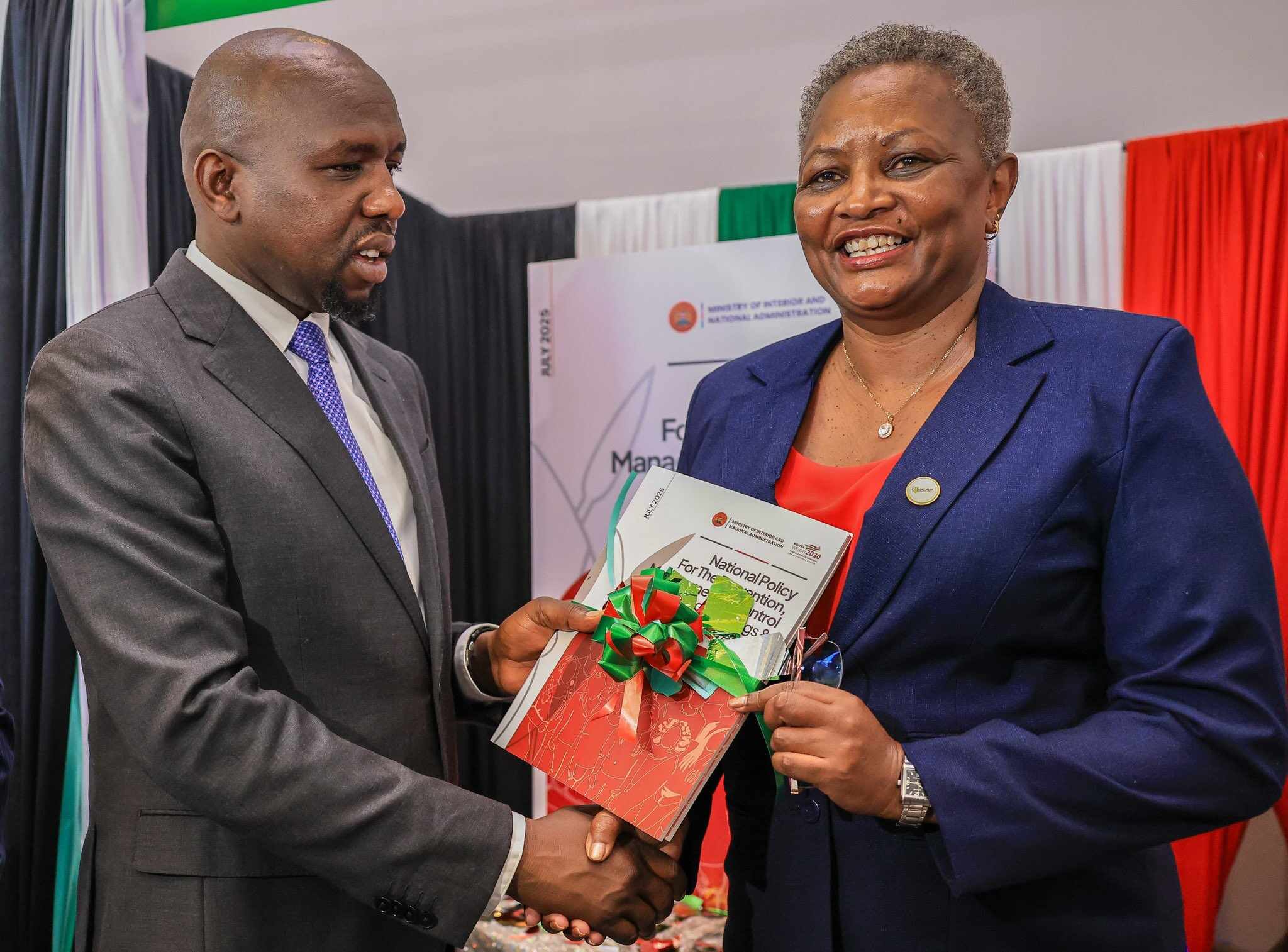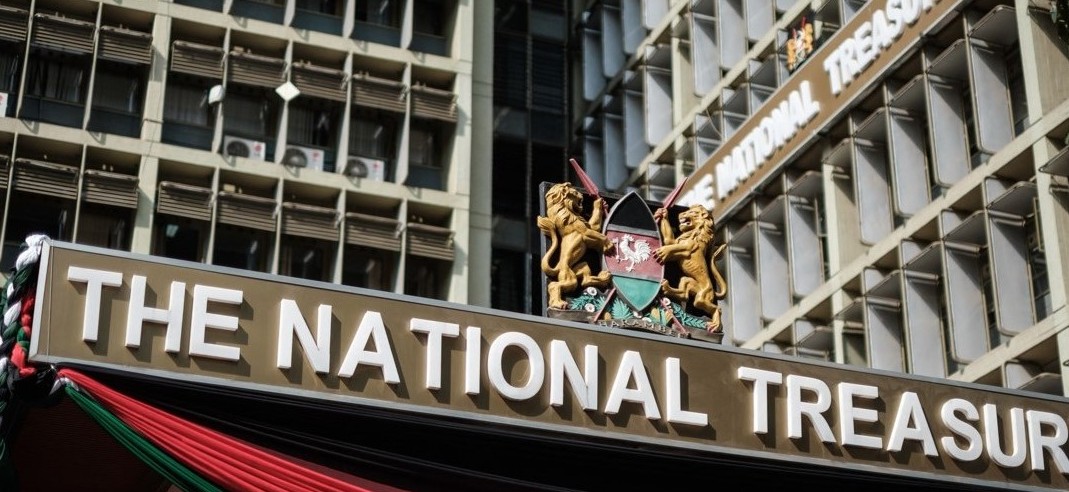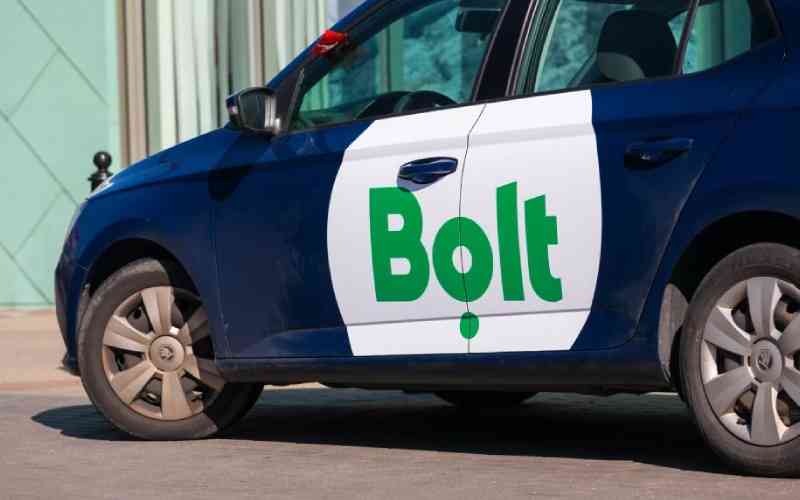Government unveils new policy to tackle drug and substance abuse

The policy reinforces their role in public awareness campaigns, community-based prevention initiatives and identification of at-risk individuals and areas with a bid to minimize the incidence and prevalence of alcohol drugs and substance use.
The government has launched a national policy for the prevention, management and control of alcohol and substance abuse in a bid to address their accessibility in the country.
The new policy reinforces the state's role in public awareness campaigns, community-based prevention initiatives and identification of at-risk individuals and areas with a bid to minimise the incidence and prevalence of alcohol, drugs and substance use.
According to the National Authority for the Campaign Against Alcohol and Drug Abuse (NACADA), the legal drinking age in the country now shifts from 18 to 21, while alcohol advertisements will no longer be permitted during prime time TV and on digital platforms.
More To Read
- Substance abuse in Coast region exceed national average - CS Murkomen
- 20 arrested in Malindi crackdown on criminal gangs and drug networks
- Kenyan national, three others indicted in US for allegedly arming Mexican drug cartel
- Waking up to addiction: Life’s daily struggle in informal settlements
- Frequent cannabis busts reveal depth of Kenya’s ongoing war on drugs
- Evangelical churches back new state policy to fight alcohol and substance abuse
At the same time, the licensing of outlets, retail (on-license and off-licence) or wholesale, located within a minimum of three hundred metres from any nursery, primary, secondary, and higher learning institutions, shall be prohibited.
All public officers in the enforcement and compliance chain in national and county governments shall also not own and operate an outlet selling alcohol directly or via proxy.
Statistics show that alcohol remains the most commonly abused substance in Kenya, contributing significantly to morbidity and mortality.
Key findings from a recent national survey conducted by NACADA revealed that one in every six Kenyans (4.7 million) aged 15–65 currently uses at least one drug or substance, while one in every eight Kenyans (3.2 million) consumes alcohol.
At the same time, one in every 12 Kenyans (2.3 million) uses tobacco, while one in every 53 Kenyans (518,807) uses cannabis. Furthermore, one in every 500 Kenyans (60,407) misuses prescription drugs, and one in every 15 Kenyans (1.77 million) engages in polydrug use (multiple substances).
"The burden of addiction in Kenya is severe, with a critical shortage of treatment and rehabilitation services. The data highlights that one in every 20 Kenyans (1.36 million) is addicted to alcohol; one in every 30 (887,627) is addicted to tobacco; and one in every 111 (234,855) is addicted to cannabis," the policy document shows.
Consequently, the rising rates of early substance initiation, increasing cannabis use, and high addiction levels underscore the urgent need for expanded prevention, treatment, and rehabilitation services in Kenya. Without immediate action, the public health and socioeconomic consequences of substance abuse will continue to escalate, affecting individuals, families, and communities nationwide.
Noting that alcohol and drug abuse directly undermines the core mandate of the Ministry of Interior, CS Kipchumba Murkomen said efforts must be put to combat the menace to ensure national security and foster a peaceful environment for all Kenyans and visitors.
"Over the last few months, I have engaged local leaders, security agencies and members of the public in consultative forums dubbed Jukwaa La Usalama across the length and breadth of our nation. In each of the 22 counties so far visited, alcohol and drug abuse were identified as a major problem. We must do everything to combat this menace. Our focus will be multi-pronged and decisive," said Murkomen.
Consequently, he said the Ministry shall focus on law enforcement and supply reduction, community engagement and administration, border security and control and support towards reintegration and rehabilitation efforts.
"This Policy empowers us to intensify our operations against drug cartels, illicit brewers and peddlers who prey on the vulnerability of our people, including children. The National Police Service (NPS), in close collaboration with Specialised Units and Intelligence Agencies, will enhance surveillance, dismantle supply networks and ensure that those who profit from this menace are brought to justice. No alcohol is sold in Kenya without the knowledge of the Chief and the OCS. Enforcement is the most important thing at the lowest unit," he said.
Other areas of focus will be areas near institutions of higher learning, including major towns where alcohol and drugs sale is reported to be rife.
He also urged that a united front, driven by a common purpose to protect Kenyan children, empower the youth, and restore the dignity and potential of those ensnared by addiction, be forged.
"Alcohol and drug abuse is a shared challenge. The implementation of this Policy is, therefore, a shared responsibility. It calls for synergy amongst all stakeholders in national and county governments, civil society, faith-based organisations, the private sector, and indeed, every Kenyan," he said.
NACADA CEO Anthony Omerika said the policy centres on accessibility and availability of alcohol and drugs, which he noted remain at the heart of the problem. "This policy is intended to cure this amongst other issues," he said.
The policy further prohibits the sale of alcohol via vending machines; in public beaches, public parks, amusement parks, recreational facilities, medical facilities, sports facilities, bus parks, bus stops, petrol stations, railway stations, public transport including trains, ferry stations, piers, and along the highways shall be prohibited.
At the same time, it shall not be hawked or delivered at home or via couriers, sold in supermarkets, or outlets selling products associated with children, such as toy shops, at residential premises or restaurants.
Top Stories Today














































